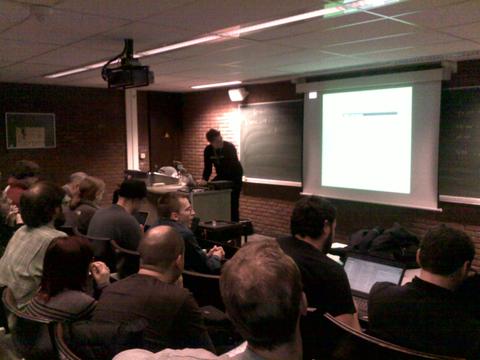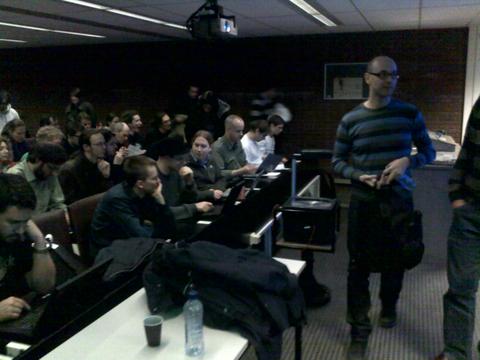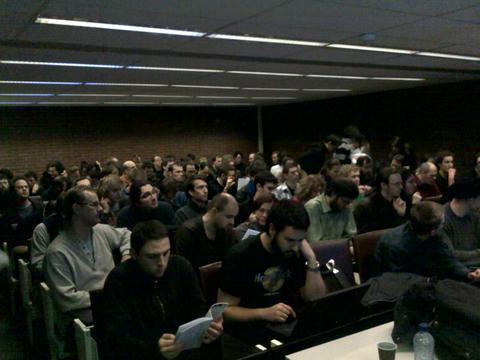Decentralised systems and the tendency to centralisation
Saturday, February 12th, 2011In his presentation at FOSDEM on “Power, Freedom, Software. Why we need to divide and re-conquer our systems” Karsten Gerloff talked about the difference between decentralised systems, which are networks of client-server systems (such as Email), and distributed systems, where all nodes are equal (such as peer to peer filesharing networks like GNUnet).
If the client and the server of a decentralised system are both free software then anyone can start their own server and be free from control. In practice, decentralised systems have a tendency to become centralised, and in some cases highly centralised for most users.
The tendency to centralisation is a result of two factors: asymmetric costs and economies of scale.
- Asymmetric costs: in client-server systems, the server generally requires more administration that the client. Users have an incentive to transfer administration to a third-party, either for a fee or trading away privacy, in the case of advertising-supported services.
- Economies of scale: server administration is subject to significant economies of scale. Larger providers drive out smaller providers over time, leading to a high degree of centralisation.
These two factors form a positive feedback loop, as larger providers can offer better services at lower cost, thereby attracting more users.
As a specific example, consider email. In the early days, each group of users had their own mail server at their local site. Over time, email has been outsourced to ISPs, ISPs have merged and been taken over, and finally been overtaken by a small number of global mail providers with userbases in the hundreds of millions.
Although the factors driving this process are universal the degree of centralisation is not uniform, but depends on the relative cost of administration and value of privacy for different users. For example, email has become effectively centralised for individual non-technical users, where the relative cost of running a mail server is high and the perceived privacy problem is low. For large companies, the relative cost of running a mail server is lower, confidentiality of corporate information is valued, and most maintain their own mail systems in-house.


